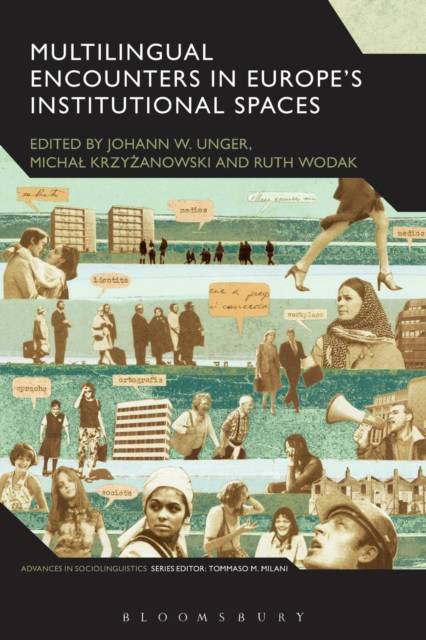
Bedankt voor het vertrouwen het afgelopen jaar! Om jou te bedanken bieden we GRATIS verzending (in België) aan op alles gedurende de hele maand januari.
- Afhalen na 1 uur in een winkel met voorraad
- In januari gratis thuislevering in België
- Ruim aanbod met 7 miljoen producten
Bedankt voor het vertrouwen het afgelopen jaar! Om jou te bedanken bieden we GRATIS verzending (in België) aan op alles gedurende de hele maand januari.
- Afhalen na 1 uur in een winkel met voorraad
- In januari gratis thuislevering in België
- Ruim aanbod met 7 miljoen producten
Zoeken
Multilingual Encounters in Europe's Institutional Spaces
€ 88,45
+ 176 punten
Omschrijving
Multilingual encounters have been commonplace in many types of institutions, and have become an essential part of supranational institutions such as the EU since their inception. This volume explores and discusses different ways of researching the discursive dimension of these encounters, and critically examines their relevance to policy, politics and society as a whole. This includes institutions at the local, regional and supranational level.
Multilingualism in institutions is currently often seen as an obstacle rather than an opportunity, at least with respect to European public and private spheres. The volume asks:
- exactly how is multilingualism conceptualized and talked about in different institutions?
- how do different institutions 'deal' with multilingualism, both internally and externally?
- what are the policy making rules and challenges for the future for various institutions with respect to multilingualism?
Multilingualism in institutions is currently often seen as an obstacle rather than an opportunity, at least with respect to European public and private spheres. The volume asks:
- exactly how is multilingualism conceptualized and talked about in different institutions?
- how do different institutions 'deal' with multilingualism, both internally and externally?
- what are the policy making rules and challenges for the future for various institutions with respect to multilingualism?
Specificaties
Betrokkenen
- Uitgeverij:
Inhoud
- Aantal bladzijden:
- 288
- Taal:
- Engels
- Reeks:
Eigenschappen
- Productcode (EAN):
- 9781474254748
- Verschijningsdatum:
- 27/08/2015
- Uitvoering:
- Paperback
- Formaat:
- Trade paperback (VS)
- Afmetingen:
- 156 mm x 234 mm
- Gewicht:
- 408 g

Alleen bij Standaard Boekhandel
+ 176 punten op je klantenkaart van Standaard Boekhandel
Beoordelingen
We publiceren alleen reviews die voldoen aan de voorwaarden voor reviews. Bekijk onze voorwaarden voor reviews.








